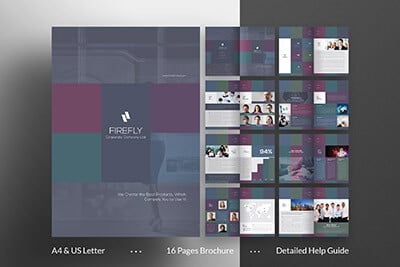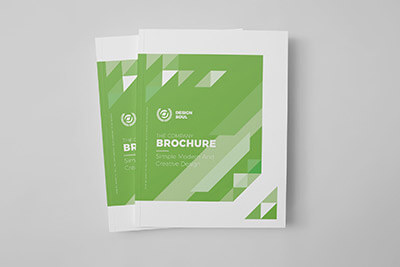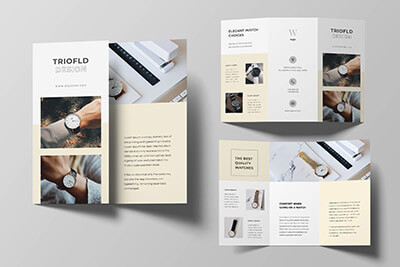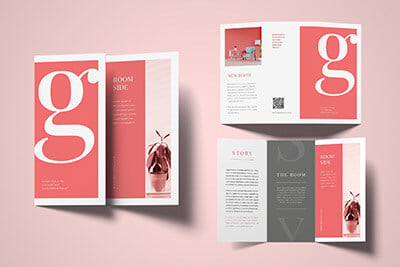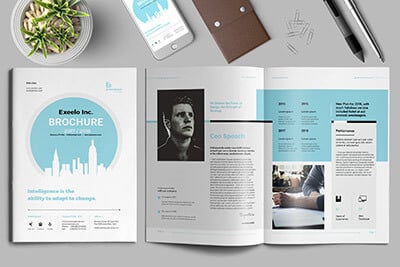How to Print a Brochure: 3 Options Compared
You’ve designed a brochure. Now what? With so many printing options out there, how do you know what option is best? The decision can depend on budget, paper, and printing needs, turnaround time, as well as other factors. And not all print options are created equal.
Today, we’re going to compare three different option for printing a brochure so that your design can shine on paper.
Make sure to click through the examples as well, for some more images of beautifully printed brochures! Or, browse through our complete guide on how to design a brochure.
2 Million+ Brochure Templates, Poster Templates, and Design Resources With Unlimited Downloads
Download thousands of stunning brochure templates, flyer templates, and more with an Envato Elements membership. It starts at $16 per month, and gives you unlimited access to a growing library of over 2,000,000 brochure designs, flyers, print templates, themes, photos, and more.
1. Use a Local Printer
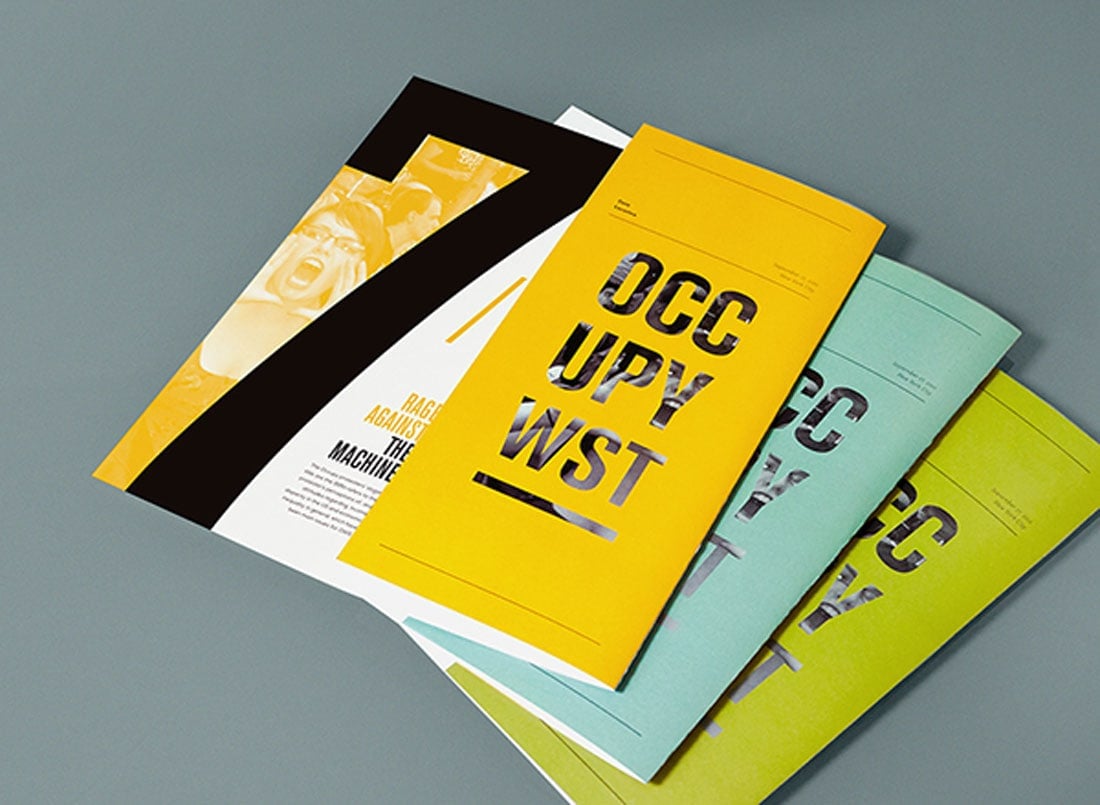
A local printer or print shop can provide a lot of brochure needs and help you get a feel for what the final product will look like ahead of printing.
Most local printers have paper — in different stocks and colors — on hand so you can see what options are available and pick the paper that’s right for the job. (Nice paper stock can really impress certain audiences and make your design that much more memorable.)
Local printers often offer quick turnarounds since you won’t have to wait for shipping as well. Look for a print shop in your region or ask for a recommended printer from industry peers. Different local printers might have specific things they do exceptionally well.
Local printers are a great option for small jobs as well. Many online printers have minimum quantities that aren’t a restriction when you work locally.
Finding someone in your region that can print brochures for you is the recommended option. The service will be hard to beat and it’s always a good idea to do business within your community.
Pros
- Customer service
- Ability to pick out paper before printing
- Quick turnarounds without delivery fees
- Physical proofs
- Ability to print small jobs
Cons
- More expensive than some online options
- Small printers might not carry as many paper options as bigger shops
2. Use an Online Printer

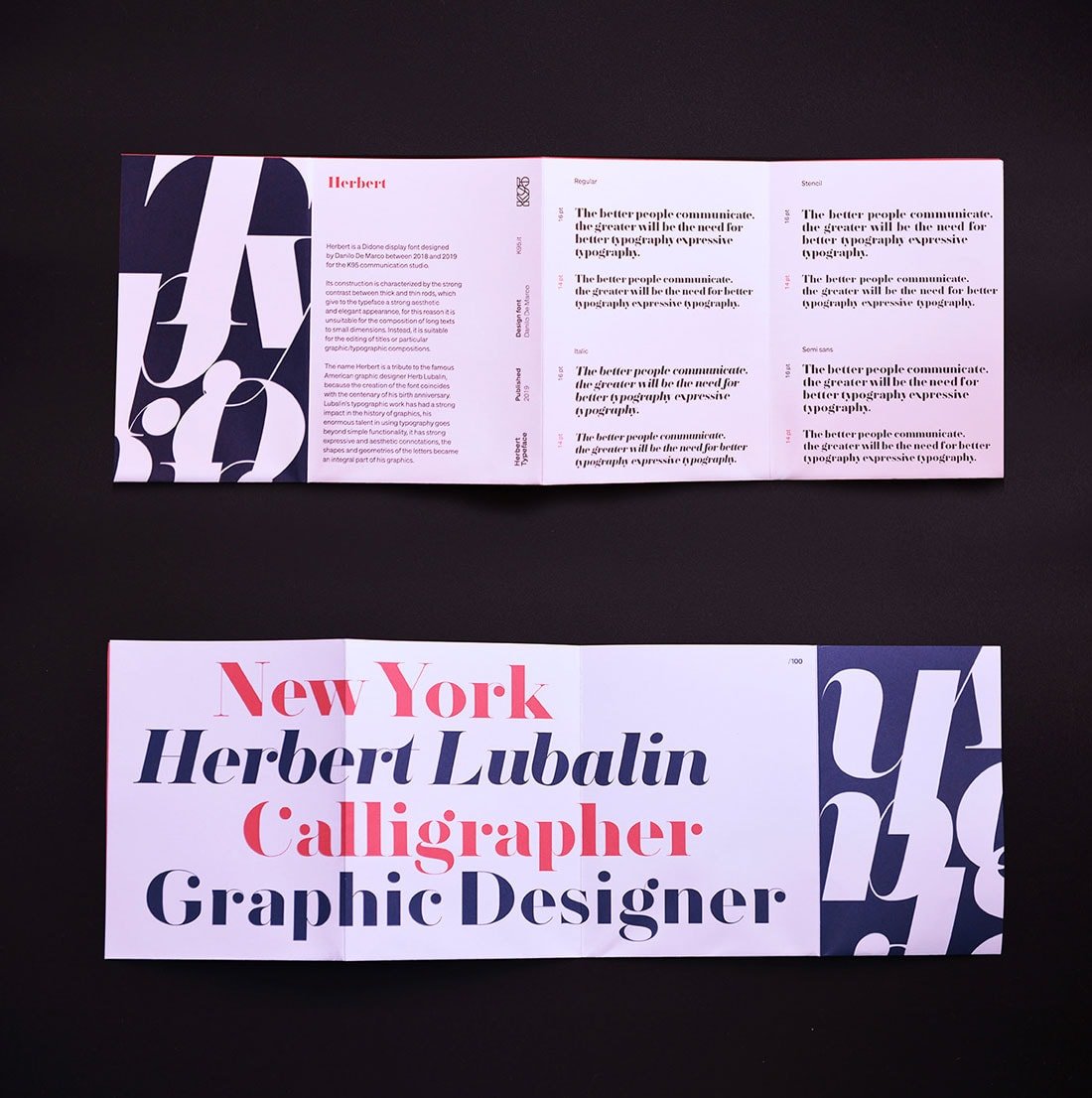
One of the most popular options when it comes to brochure printing is to use an online printer. There are tons of options available with printers who specialize in scaled-up jobs.
Online printing is design for when you need a job with scale, aren’t in a hurry, and don’t need a lot of fancy options (even though you can get somewhat fancy).
The primary benefit of online printing is the ability to produce large print jobs without a lot of additional cost. If you’ve ever ordered brochures from an online printer, you might have noticed that the cost of printing 500 and 1,000 only changes the price by a few dollars.
The biggest challenge with online printers is proofing. If you have a specialty job, getting a printed proof is more difficult and costly from a vendor that isn’t physically located nearby.
Pros
- Ability to shop prices and for the best deals
- Practically unlimited options available
- Many online printers are fairly inexpensive
- Plenty of room to scale print jobs
Cons
- Online proofs aren’t the real thing
- You have to account for delivery times or rush fees can get pricey
- Some limitations with special cuts, technqiues, or finishes with many online print options
3. Do It Yourself


The final option for printing a brochure is to do it yourself. (We aren’t showing self-printed examples above.)
DIY printing isn’t generally recommended unless you have a high-quality printer and only need a few copies. It can also be a challenge to get the folds exactly right for brochures (such as a tri-fold), resulting in a sloppy final product.
But it is an option if you have a simple job without a bleed.
The biggest challenge with a DIY job is getting creating a design that will still look good without professional printing. It’s very difficult and depends on the type of brochure you are producing. Most people don’t have the tools to properly fold DIY jobs or bind multi-page brochures properly.
For most designers, the only reason to go the DIY route is to create a mock proof to preview the design in person. Clients will often ask for a design that can be printed in-house and helping them understand the challenges of a good print is important; you should also shift the design strategy accordingly if DIY printing is the choice.
Pros
- Low- to very-little cost; just paper and ink
- Quick
Cons
- Limited print and design options
- Lacks professional quality
- Difficult to get folds correct
Conclusion
Some designers are opting not to print brochures at all and go paperless. This option can be viable as well as long as you have a way to get the digital brochure design in front of the right audience.
For most designers, paperless works best in concert with a printed brochure. It’s always OK to mix and match options for the solution that works best for your job.
